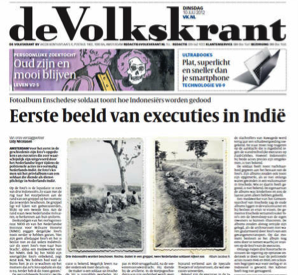Ned Richardson-Little. The Human Rights Dictatorship: Socialism, Global Solidarity and Revolution in East Germany. New York and Cambridge: Cambridge University Press. 2020. £22.99 Paperback
Interviewed by Marc-William Palen
Ned Richardson-Little’s The Human Rights Dictatorship recovers the history of human rights within the German Democratic Republic (GDR). In doing so, he provocatively reinterprets the Cold War, the evolution of human rights in the Eastern Bloc, and the revolutions of 1989. The book provocatively shows how “human rights” had multiple meanings depending upon which side of the Cold War – and the Berlin Wall – you found yourself. Richardson-Little’s tracing of how the meaning of human rights evolved in the decades after the Second World War illuminates a global battleground of ideas that continued to be fought in Eastern Europe long after the tearing down of the Berlin Wall.
Dr Richardson-Little is a Freigeist Fellow at the University of Erfurt, Germany, where he leads a project on international crime and globalization. Before this, he was a postdoctoral fellow in the 1989 after 1989 research group (2014-18). He received the Fritz Stern Dissertation Prize from the German Historical Institute (Washington) and a commendation from the Fraenkel Prize committee at the Wiener Library. Academic publications include numerous chapters and journal articles, and the editing of a special issue of East Central Europe. He has also written for the Imperial & Global Forum, and hosts a blog, History Ned. You can follow him on Twitter @HistoryNed.
How would you briefly summarize your book? Give us your “elevator pitch,” if you will.
The idea of human rights was crucial to the fall of the Berlin Wall and the collapse of state socialism in East Germany, but before that, it had also been a core part of communist ideology used to legitimize dictatorship. The ruling Socialist Unity Party (SED) came to see itself and the German Democratic Republic as a champion of human rights, both at home and around the world. The party even created a socialist version of Amnesty International to campaign on behalf of victims of human rights violations in West Germany and beyond. For dissident activists, creating a human rights movement wasn’t a matter of being inspired by the West, but reclaiming the idea of human rights from the state by demanding democracy and pluralism from within. The SED was able to use human rights politics to sustain power for decades, but once dissident groups succeeded in wresting it from the party, this accelerated the process of collapse leading to the fall of the Berlin Wall in 1989. Continue reading “The Human Rights Dictatorship – An Interview with Ned Richardson-Little”














You must be logged in to post a comment.